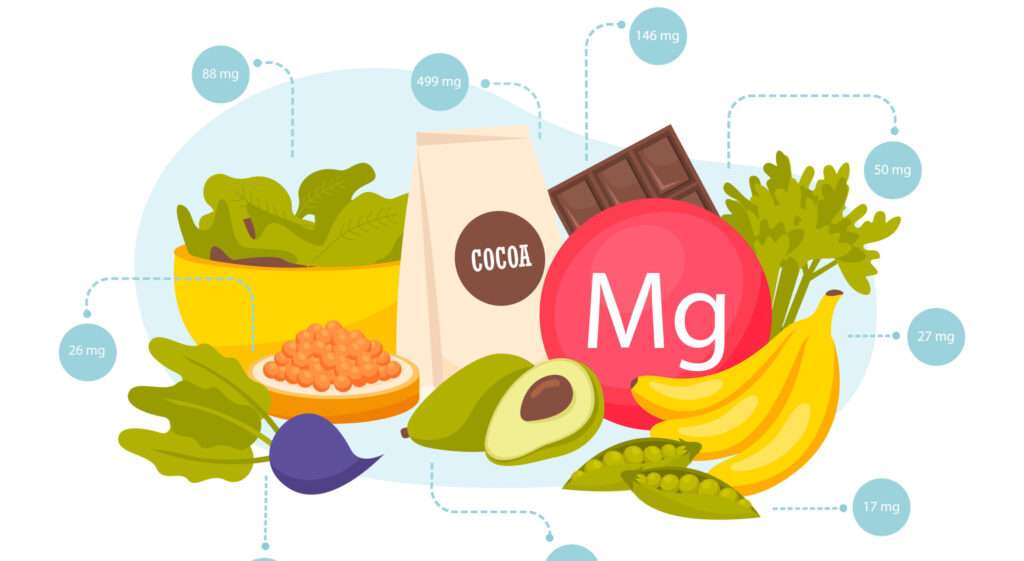Table of Contents
ToggleIntroduction
Feeling tired, anxious, or experiencing muscle cramps despite good sleep and a healthy lifestyle? You might be overlooking magnesium. Among supplements, magnesium glycinate is notable for its unique benefits and high bioavailability. This article explores what magnesium glycinate is, its benefits, and how to incorporate it into your life.
What is Magnesium Glycinate?

Magnesium glycinate is a chelated form of magnesium that joins magnesium with the amino acid glycine. This binding enhances its absorption in the body and makes it a preferred choice among individuals looking to manage their magnesium levels effectively.
- High Absorption: Chelated for better absorption and maximum benefits.
- Promotes Relaxation: Promotes a restful sleep and reduces stress.
- Muscle & Nerve Support: Aids in muscle recovery and prevents cramps.
- Gentle on the Stomach: No digestive discomfort or laxative effect.
The Science Behind Glycinate
- Chelation: During the process of chelation, magnesium is paired with glycine, allowing it to pass more easily through the gut wall and into the bloodstream.
- Bioavailability: Magnesium glycinate is touted for its high bioavailability, which means a greater amount of the supplement is absorbed and utilized by the body compared to other magnesium forms, like magnesium oxide.
Why You Need Magnesium

Magnesium is a necessary mineral that the body uses in over 300 metabolic processes. Many people’s diets do not provide enough magnesium, despite its importance. Here are some reasons why this mineral deserves your attention:
Essential for Various Bodily Functions
- Energy Production: Magnesium plays a vital role in converting food into energy.
- Protein Synthesis: It supports the creation of proteins, which are essential for cell repair and growth.
- Bone Health: Magnesium helps regulate calcium levels, contributing to bone density.
Consequences of Magnesium Deficiency
There are a variety of health issues that can be caused by a magnesium deficiency, such as:
- Muscle cramps
- Fatigue
- Increased anxiety
- Heart rhythm disorders
Benefits of Magnesium Glycinate

Magnesium glycinate offers numerous benefits that may enhance your overall health and well-being. Here’s a closer look at why you might consider adding it to your supplement routine.
Improved Sleep Quality
One of the most touted benefits of magnesium glycinate is its ability to promote better sleep. The glycine component has calming properties that can enhance sleep quality and help reduce insomnia.
Reduced Anxiety and Stress
Lower levels of anxiety and stress have been linked to magnesium intake. By supporting neurotransmitter function, magnesium glycinate can help stabilize your mood.
- A study published by the National Institutes of Health shows that magnesium supplementation may reduce anxiety symptoms.
Muscle Relaxation and Recovery
Athletes and individuals engaged in fitness routines recognize the importance of magnesium for muscle function and recovery. Magnesium glycinate can alleviate muscle tension and cramps, making it an ideal post-workout supplement.
Magnesium Glycinate to Your Daily Routine

Adding magnesium glycinate to your daily routine can be a simple task. Here are some suggestions on how to do it safely and effectively.
Dosage Recommendations
- General Guidelines: The typical dosage ranges from 100 to 400 mg of magnesium glycinate per day, depending on your individual needs.
- Consult a Professional: It’s always wise to consult with a healthcare provider to determine the right dosage for you, especially if you have pre-existing conditions or are pregnant.
Timing Matters
- Before Bed: For those seeking sleep benefits, consider taking magnesium glycinate before bedtime.
- With Meals: Taking it with meals can enhance absorption and minimize digestive discomfort.
Food Sources Rich in Magnesium
You can also increase your magnesium intake by eating foods, in addition to supplements.
- Leafy greens (like spinach and kale)
- Nuts and seeds (which include almonds and pumpkin seeds)
- Whole grains (like quinoa and brown rice)
- Legumes (such as black beans and lentils)
Conclusion
Magnesium glycinate is an invaluable supplement that can pave the way to improved health and wellness. From enhancing sleep quality to providing muscle relaxation and aiding in stress management, this chelated form of magnesium may be the answer to many of the challenges you face due to magnesium deficiency.
Consider incorporating magnesium glycinate into your daily routine, but be sure to consult with a healthcare professional to ensure it’s right for you. Your journey to better health may just begin with this essential mineral.
Takeaway: Don’t underestimate the power of magnesium. Both magnesium glycinate and food sources rich in magnesium can significantly impact your health. Why not explore whether your body might benefit from a little extra magnesium today?
Feel free to share your experiences with magnesium, or let us know your thoughts in the comments below!

